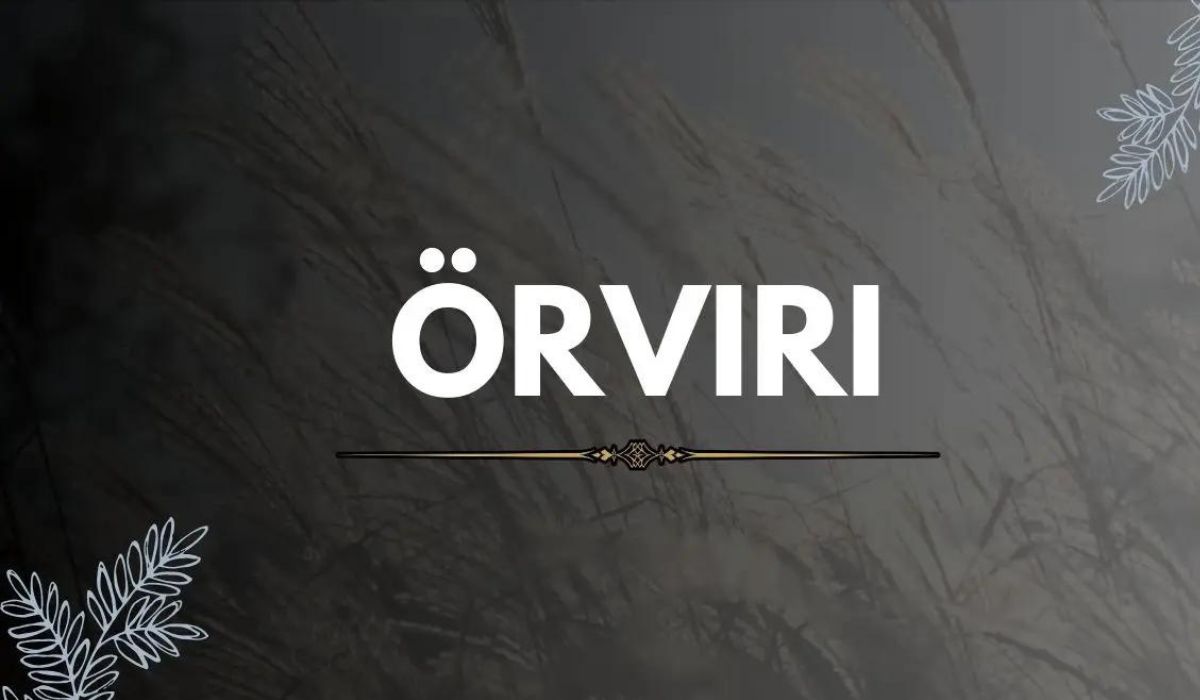Introduction
In the intricate tapestry of the Icelandic language, certain words stand out not just for their meaning, but for the cultural and historical weight they carry. Örviri is one such word. This distinctive Icelandic term, rich in connotation and steeped in history, offers a unique lens through which we can explore the nuances of Icelandic culture and heritage.
Origins and Etymology of Örviri
Icelandic Roots
The word örviri has deep roots in the Icelandic language, tracing back to the early days of Icelandic settlement. Like many Icelandic words, it has a complex etymology, derived from Old Norse, the language of the Vikings who settled in Iceland over a millennium ago. The term itself is a compound word, with “ör” meaning “arrow” and “viri” being a derivative of “verja,” meaning “to defend” or “to protect.” This etymology suggests that örviri originally referred to a defensive tool or perhaps a protective stance, both physically and metaphorically.
Historical Context
The historical context of örviri is tied to Iceland’s rugged and isolated environment, where survival often depended on quick thinking and effective defense mechanisms. In the harsh conditions of early Icelandic life, terms like örviri would have been essential in describing the tools and strategies necessary for protection and survival. The word likely evolved in its meaning over centuries, reflecting changes in Icelandic society and the challenges it faced.
Related Terms and Expressions
Within the Icelandic language, örviri is related to several other terms that carry similar connotations. For example, “ör” (arrow) is commonly used in Icelandic expressions related to speed and precision, while “verja” (to defend) appears in various contexts related to protection and safeguarding. These related terms help to illuminate the multifaceted nature of örviri, which can be seen as a linguistic bridge between concepts of offense and defense.
Meaning and Connotations of Örviri
Primary Definition
The primary definition of örviri in modern Icelandic is somewhat metaphorical. It is often used to describe a state of vigilance or readiness, particularly in situations that require a quick response or defensive action. This meaning is closely tied to the word’s etymological roots, combining the ideas of precision (as with an arrow) and defense (as with protection).
Nuances and Variations
The meaning of örviri can vary depending on the context in which it is used. In some cases, it may refer to a literal state of preparedness, such as being ready for an impending storm or conflict. In other instances, it may be used more figuratively, to describe someone who is mentally or emotionally prepared for a challenge. These nuances make örviri a versatile word in the Icelandic language, capable of conveying a range of meanings depending on the situation.
Cultural Context
The cultural significance of örviri is deeply rooted in Icelandic society. Icelanders have long valued resilience and preparedness, traits that were essential for survival in a harsh and unpredictable environment. It embodies these values, symbolizing the importance of being ready for whatever challenges may come, whether in nature or in life. This cultural context adds a layer of depth to the word, making it more than just a linguistic term, but a reflection of Icelandic identity.
Usage of Örviri in Icelandic Language and Literature
Frequency and Context
While It is not among the most commonly used words in Icelandic, it does appear with some frequency in both everyday language and literary contexts. It is often used in situations where vigilance or preparedness is being emphasized, whether in conversation or in writing. The word’s relatively specific meaning makes it less common than more general terms, but when it is used, it carries significant weight.
Examples in Texts
It can be found in various Icelandic texts, particularly those that deal with themes of survival, conflict, and resilience. For example, in historical sagas, the word might be used to describe a warrior’s readiness for battle or a community’s preparations for a long winter. In modern literature, örviri might be used more figuratively, to describe a character’s mental or emotional state as they face a difficult challenge. These examples highlight the word’s adaptability and enduring relevance.
Poetic and Literary Significance
In Icelandic poetry and literature, örviri often appears as a symbol of strength and resilience. Poets might use the word to evoke images of arrows flying swiftly through the air, representing precision and purpose. In literary contexts, örviri might be used to convey a character’s inner strength or determination, particularly in the face of adversity. This poetic and literary significance adds to the word’s cultural richness, making it a powerful tool for expression.
Cultural and Historical Significance of Örviri
Connection to Nature
The word örviri has a strong connection to Iceland’s natural landscape. In a country where nature is both beautiful and dangerous, being prepared for whatever the environment might throw at you is crucial. Örviri reflects this connection, symbolizing the need for vigilance in a land of volcanoes, glaciers, and unpredictable weather. The word’s association with arrows also ties it to Iceland’s history of hunting and survival in the wild.
Cultural Traditions
Icelandic cultural traditions have long emphasized the importance of readiness and protection, values that are encapsulated in the concept of örviri. From the sagas of old to modern-day practices, Icelanders have always placed a high value on being prepared for the unexpected. Whether it’s a sudden storm or a volcanic eruption, the ability to respond quickly and effectively has been a key aspect of Icelandic life, and örviri embodies this tradition.
Historical Events
Throughout Iceland’s history, there have been numerous events that underscore the importance of örviri. From the early days of settlement, when survival depended on quick thinking and resourcefulness, to more recent times, when Icelanders have had to contend with natural disasters like volcanic eruptions and earthquakes, the concept of örviri has been a constant. This historical context gives the word a deep resonance in Icelandic culture, making it more than just a term, but a symbol of the nation’s enduring resilience.
Linguistic Analysis and Comparisons of Örviri
Grammatical Structure
The grammatical structure of örviri is typical of Icelandic compound words. It combines “ör” (arrow) with “viri” (a derivative of “verja,” to defend), creating a word that conveys a complex concept in a concise form. This structure is a common feature of Icelandic, where compound words are often used to express nuanced ideas. The word functions as a noun in most contexts, though it can also be used adjectivally in some cases.
Comparisons with Similar Words
In Icelandic, there are several words that share similarities with It , both in meaning and structure. For example, the word “varði” (protector or guardian) has a similar connotation of defense and vigilance. However, örviri is distinct in its combination of offense (arrow) and defense (to protect), making it a unique term in the Icelandic lexicon. Comparisons with similar words in other languages, such as the Old English “æschere” (literally “ash army,” referring to a group of warriors), also highlight the word’s unique blend of meanings.
You May Also Like: Barcelia: Where Quality Meets Timeless Design
Conclusion
It is more than just a word in the Icelandic language; it is a symbol of the nation’s history, culture, and values. From its origins in Old Norse to its modern usage, örviri embodies the Icelandic spirit of resilience, preparedness, and connection to the natural world. Whether used in everyday conversation, literature, or poetry, the word carries with it a depth of meaning that reflects the unique challenges and triumphs of Icelandic life.
FAQs
- What does “örviri” mean in Icelandic?
- “Örviri” is an Icelandic term that signifies vigilance or readiness, particularly in contexts requiring quick defensive action.
- What is the origin of the word “örviri”?
- The word “örviri” originates from Old Norse, combining “ör” (arrow) and “verja” (to defend), reflecting its historical roots in Icelandic defense and survival.
- How is “örviri” used in Icelandic literature?
- “Örviri” appears in Icelandic literature to convey themes of resilience, readiness, and strength, often symbolizing inner determination.
- Is “örviri” commonly used in modern Icelandic?
- While not an everyday word, “örviri” is used in specific contexts where readiness or vigilance is emphasized, especially in cultural or literary discussions.
- How is “örviri” connected to Icelandic culture?
- “Örviri” is deeply connected to Icelandic culture, reflecting the nation’s historical emphasis on resilience, preparedness, and a strong connection to nature.











